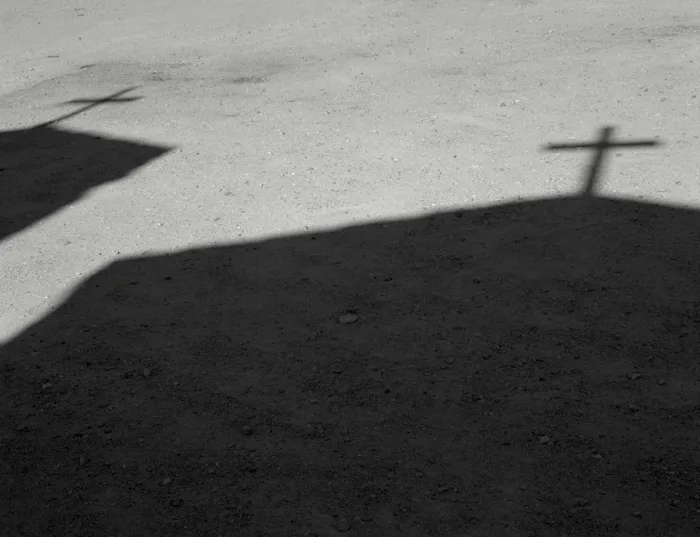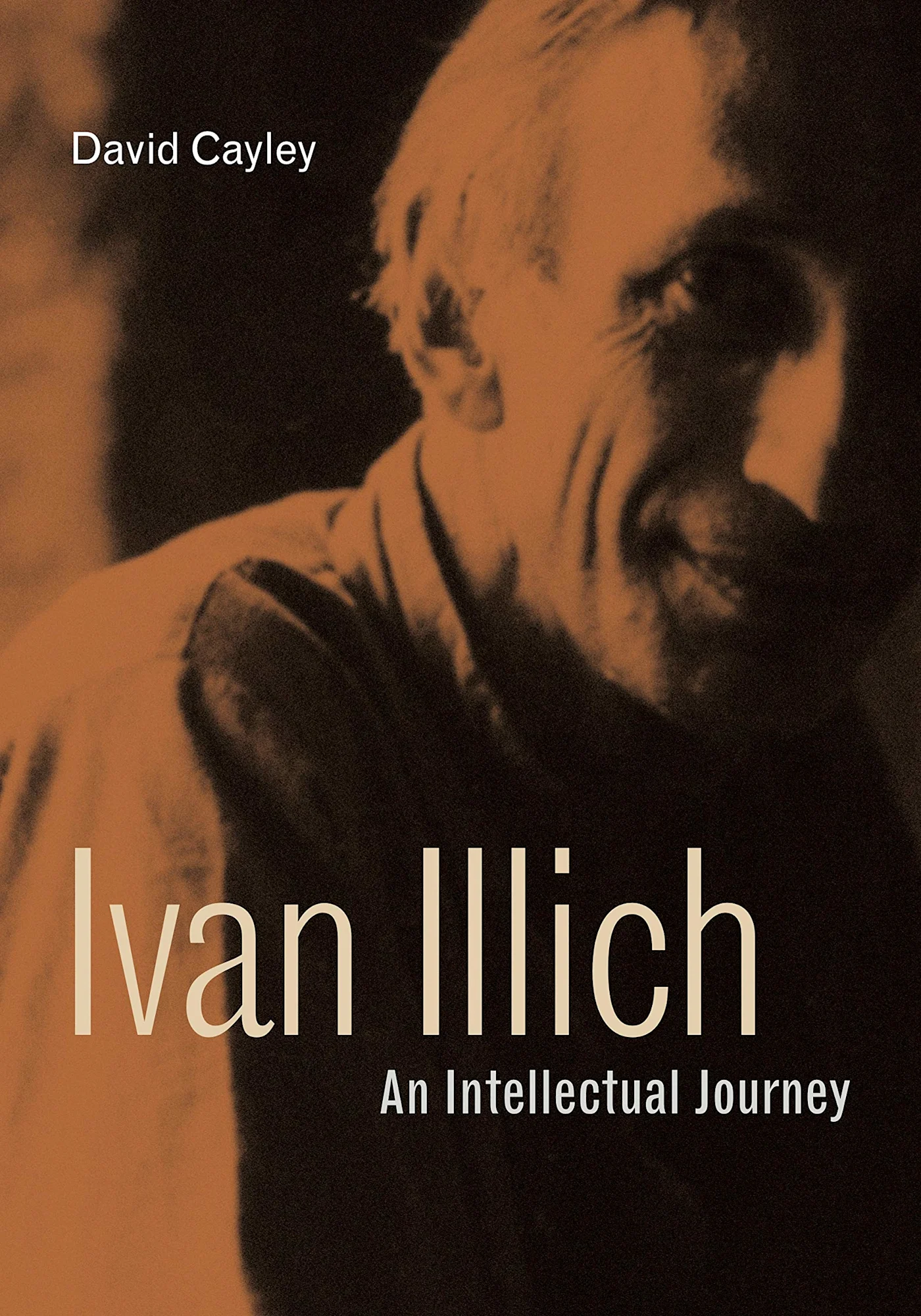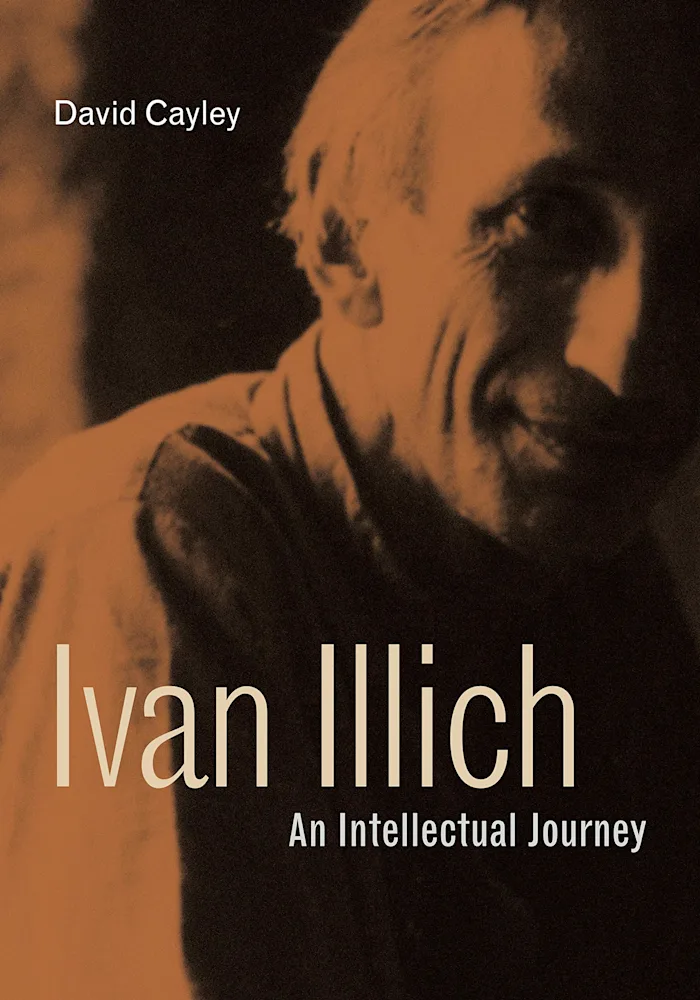Illich as Revolutionary
David Cayley
A selection from David Cayley’s Ivan Illich: An Intellectual Journey, appearing this month with Penn State Press.
Tools for Conviviality
Ivan Illich begins [his 1973 work, Tools for Conviviality] with an oracular introduction in which he announces the end of the industrial age and says that his book will be the first installment of “an epilogue” to this age that he will produce over “the next several years.” He promises a description of “the fading monopoly of the industrial mode of production and the vanishing of the industrially-generated professions this mode of production serves.” In doing so, he hopes, among other things, “to show that two-thirds of mankind still can avoid passing through the industrial age by choosing right now a postindustrial balance in their mode of production which the hyperindustrial nations will be forced to adopt as an alternative to chaos.” The assured tone echoes Deschooling Society. Decisive change will certainly come, he argues; the only question is whether it will be adaptive or catastrophic. This idea of a new age, or at least a new phase of modernity, was hardly unique to Illich. American sociologist Daniel Bell published The Coming of Post-Industrial Society in the same year that Tools for Conviviality appeared. The term postmodern, though not yet current, was on the horizon. Nor was Illich’s dire forecast all that unusual at the time — demographers Paul and Anne Ehrlich had warned in their 1968 bestseller The Population Bomb of “a race to oblivion” and predicted mass starvation in the next decade. What was distinctive about Illich’s book was his rejection of all partial or administrative solutions in favor of a revolutionary change in “the structure of tools.”
Illich was eccentric in choosing the word tools for the title of a general essay on what had usually been called, in English, technology or technics. Heidegger’s die Technik had been translated as “technology,” as had Jacques Ellul’s la technique. In Canada, philosopher George Grant had titled his reflections on this theme Technology and Empire. Illich chose the term tools because he wanted to disaggregate his subject and at the same time to increase the reach of his master term by including “intangible commodities” within it as well.
I...include among tools [not only] productive institutions such as factories that pro- duce tangible commodities like corn flakes or electric current, [but also] productive systems for intangible commodities such as those which produce “education,” “health,” “knowledge,” or “decisions.” I use this term because it allows me to subsume into one category all rationally designed devices, be they artifacts or rules, codes or operators, and to distinguish all these planned and engineered instrumentalities from other things such as basic food or implements, which in a given culture are not deemed to be subject to rationalization. School curricula or marriage laws are no less purposefully shaped social devices than road networks.
The term tools gains Illich a number of advantages. He can use it very generally, without needing to enter into a Heideggerian pursuit of its essence. He can include services in accord with his belief, for example, that “deschooling is at the root of any movement for human liberation” because the repetitive rituals of schooling engender the habits and expectations that are fundamental to a commodified way of life. And finally he can suggest the possibility of practical and piecemeal action. Technology sounds intractable — it evokes, at the least, an overwhelming ensemble. One can imagine retooling. Technology suggests a comprehensive fate. Illich wanted to issue a call to action.


His first chapter sets out the theory of “Two Watersheds,” which became fundamental for all of Illich’s thinking around this time. He takes the example of medicine but suggests that other industrial institutions, mutatis mutandis, have passed over the same two divides. The first watershed, in the case of medicine, was the moment at which medical treatments became demonstrably effective and doctors began to be able to show consistently better results than traditional healers. Illich puts it at 1913, without denying that this simplifies the matter somewhat. Around this time, for example, women began to be regularly hospitalized for childbirth even though the hospital was a demonstrably more dangerous environment than the home — a case of perverse and ineffective medical treatment continuing past this first watershed. But there is no question that medicine did become effective, just as cars did expand mobility and telephones did extend communication. Illich’s first watershed stands for the moment at which this positive difference began to make itself felt. The second watershed was reached when medicine began to display “sickening side effects,” or iatrogenesis, the term he would later use for medically generated harms. By this he meant not just obvious miscarriages like getting the wrong drug or the wrong operation or picking up an infection in a hospital but also the cultural effects of the medicalization of care. “Iatrogenesis,” he writes in Medical Nemesis,
“is...but one aspect of the destructive dominance of industry over society...one instance of that paradoxical counter-productivity which is now surfacing in all major industrial sectors. Like time-consuming acceleration, stupefying education, self-destructive military defense, disorienting information or unsettling housing projects, pathogenic medicine is the result of industrial overproduction that paralyzes autonomous action.”
The second watershed, in other words, is the moment at which any industrial staple, be it a hospital or a highway system, begins to get in its own way and defeat its declared purpose. The key criterion is “autonomous action” — does the tool enable me to accomplish my own ends, or does it reshape my ends to fit the available means? When the second watershed is reached, means become ends. Health becomes the output of the health care system. Keeping the game going becomes the game.
Illich did not argue that manifestly industrial activities, like mining or manufacturing, were identical with services like medicine or education, but he did claim that they could all be measured against the same standard and that, for each, a threshold could be found at which the activity would become counterproductive if not restrained. In the preceding quote, he defines it as the point at which a given tool begins to “paralyze autonomous action.” The term is useful insofar as it indicates self-generated activity and opposes it to manipulated, or heteronomous, activity, initiated by some other who needs me to consume his product, conform to his diagnosis, or depend on his service. But the word autonomous can also sound misleadingly individualistic, given that Illich defines “conviviality” as “individual freedom realized in personal interdependence.” Communities are deprived of their proper purposes by packaged products and services, just as much as individuals are robbed of their self-determined ends, and conviviality, from its Latin roots, means “living together.”
Radical Monopoly
When tools cross the second watershed they become what Illich calls “radical monopolies,” a concept that he says goes “far beyond what the concept of monopoly usually implies.” The key issue for him is whether one can still find an alternative or decently do without the monopolized commodity. A radical monopoly exists where all alternatives have been rendered either inaccessible or unimaginable. An obvious example is an environment in which one simply can’t live without a car. What Illich calls “natural competence” is ruled out. The ability to walk is of no use if your destination is on the other side of a freeway you can’t get across; your skill in performing a job is of no consequence if you don’t possess the required educational certificate. Radical monopoly also destroys cultural competence. In Tools for Conviviality, Illich takes the example of “the control of undertakers over burial” as an instance of how culturally defined practices can be undermined.
A generation ago in Mexico only the opening of the grave and the blessing of the dead body were performed by professionals: the gravedigger and the priest. A death in the family created various demands, all of which could be taken care of within the family...Most of these were of a ritual nature, and carefully prescribed — different from region to region. Recently funeral homes were established in the major cities. At first undertakers had difficulty finding clients because even in large cities people still knew how to bury their dead. During the sixties the funeral homes obtained control over new cemeteries and began offering package deals, including the casket, church service, and embalming. Now legislation is being passed to make the mortician’s ministrations compulsory. Once he gets hold of the body, the funeral director will have established a radical monopoly over burial, as medicine is at the point of establishing one over dying.
Radical monopoly is associated with what Illich calls “overprogramming” of the social environment and “overdetermination” of the physical environment. There is nothing to do that a professional can’t do better, nothing to say for which advertisers, entertainers, and paid helpers can’t supply a formula. Radical monopoly saturates social and personal space. “Man’s poetic ability...withers.” People no longer have “the power to endow the world with..personal meaning” because the meaning has already been anticipated, planned, and built in.


Illich cogently outlines the ways in which tools that are too efficient, too powerful, or too dominant degrade nature, establish radical monopolies, overprogram the built environment, concentrate power, interrupt tradition, and increase frustration. The only way to remedy this damage, he says, is to restore the balance that he feels should characterize the relationship between a culture and its tools. The point at which balance will be achieved is not predetermined. “The human equilibrium is open,” he says, and its “parameters” are “flexible” and “shifting.” However, these shifts can occur only with “finite” limits. “People can change but only within bounds.” Accordingly, he does not try to say at which point exactly the proper balance will be found but only that balance is a perceptible quality once it has been acknowledged as the relevant ideal. People will differ in their detailed judgments about where the balance between tradition and innovation is to be set, about what degree of inequality in income is sustainable, or about what speed limit will best harmonize mobility with a sociable streetscape, but so long as balance is acknowledged to be the goal, there will be a discernible criterion to which differing opinions will ultimately have to bow. Currently, he says, industrial society lives under the sign of the “unlimited” in a condition of “dynamic instability.” It has no ultimate criterion except growth.
In arguing for balance as a crucial political consideration, Illich allied himself with those thinkers who had argued that social decisions must respect natural scales. Preeminent among those thinkers, in Illich’s view, was Leopold Kohr, the Austrian political theorist whom Illich first met in Puerto Rico. Kohr, in his seminal book The Breakdown of Nations, asserted that there is “one cause behind all forms of social misery: bigness.” “Whenever something is wrong,” Kohr wrote, “something is too big.” Illich regarded Kohr as the pioneer of the science that Illich would later call “social morphology.” British biologists D’Arcy Wentworth Thompson and J. B. S. Haldane had studied the close fit between form and size in nature and concluded that natural forms are viable only at the appropriate scale — a hawk’s form would not be viable at the scale of a sparrow or a mouse’s at the scale of an elephant. Kohr was the first to argue that social form and size show the same correlation. E. F. Schumacher would later popularize the argument in his Small Is Beautiful, a book that was published in the same year as Tools for Conviviality. Illich belongs to this barely recognized school of political thought. In Tools for Conviviality, he tries to spell out “the multiple balance” on which conviviality depends. In later works like Gender and his many studies of how technology shapes our senses, he would try to show how a feel for the fit between size and form had been lost. [...]
A New Political Map
Illich’s proposal in Tools for Conviviality is summed up in the word inversion. He calls for a “political inversion” and for an inversion in “the structure of tools.” An inversion is a reversal in which something turns inside out or upside down. It implies, in Illich’s usage, a total change or reorientation. Since such a reorientation has more typically been called conversion, one is again thrown back on the question of whether Illich is writing an encrypted theology or just trying to sugarcoat the sermon. I would prefer to say that inversion restates conversion and tries to spell out, in practical terms, what it means. This is entirely in keeping with Illich’s view that the world has arrived at a point where religion can no longer be kept in a separate compartment, under separate priestly administration, but must now be realized and lived. Recall his statement that the beatitude “blessed are the poor” is now capable of “scientific proof ” because without a style of life that is “simple in means, rich in ends,” there will be no earth to inherit. What would it mean, then, to “invert the structure of tools”? The question essentially is who’s on top, the user or the tool, and this makes inversion quite an apt word. At the moment, Illich says, we do what our tools tell us to do — we live as they dictate. Later he will explore the even more troubling idea that they also tell us what and who we are, but at this point, he focuses on how tools define the ends we pursue. If we can go to the moon, we should go to the moon. If portable phones can be made, then each of us will inevitably become a mobile communications hub. If hospitals and multi-versities are a convenient way for doctors and teachers to “deliver” their services, then that is how we will define health and education. Illich suggests that we ask what is good for us as persons and as communities and then develop or adapt existing tools according to their ability to foster this good.
Not all tools, however, can be adapted in this way. Illich emphatically rejects the idea that technology is in itself neutral and that everything depends on how it is used, by whom, and for what purpose. “My subject,” Illich says bluntly near the beginning of his essay, “is tools and not intentions.” He is not interested in what we want to do with tools or think we ought to do with them or even what we could do with them if only the right people were in charge. He focuses on the properties of tools and how they turn from means into ends despite our intentions. In this way, he hopes to enlarge the political map. Since the deputies first took their places in the French National Assembly of 1789, with supporters of the king to the right of the chair and supporters of the revolution to the left, politics has focused on the questions that are summed up in the categories of left and right — who’s in charge, how are benefits to be shared, will more freedom or more regulation produce the best outcomes? The means of production themselves have been taken for granted. Even Marxists, despite their cogent analysis of how capital alienates labor, were still able to believe that common ownership would solve the problem. Illich belongs to that group of thinkers who recognize that tools have biases that determine the intentions of their users rather than the other way around. “The issue at hand,” he writes, “is not the juridical ownership of tools, but rather the discovery of the characteristic of some tools which make it impossible for anybody to ‘own’ them. The concept of ownership cannot be applied to a tool that cannot be controlled.”


The idea that tools, or technology, to use the more conventional term, embody “intentions” that exceed, dominate, and often change the intentions of their users has been patent to many contemporary thinkers. At moments, some of these thinkers have been very much in vogue — Illich had his hour in the sun, as did Jacques Ellul and, even more, Marshall McLuhan. But, remarkably, no reorientation of politics has followed. Technology remains largely exempt from political control, and political choices continue to be plotted on a single left–right spectrum that accounts only for the balance of power between state and market. Illich proposed a new way of describing political choice. In an essay from the later 1970s called “Three Dimensions of Public Choice,” which builds on his work in Tools for Conviviality, he suggests than even a rudimentary projection of the field of political decision ought to mark out not one but three dimensions. Imagining these dimensions as Cartesian coordinates, Illich speaks of x-, y-, and z-axes. The first, or x-axis, would be the conventional one covering “issues related to social hierarchy, political authority, ownership of the means of production and allocation of resources that are usually designated by the terms ‘left’ and ‘right.’” On the second, or y-axis, he places the choice of tools, using the word in the expanded sense I have been discussing. Included would be what he calls “the institutional spectrum” in Deschooling Society. At one end would sit the radical monopolies that addict their users and entrain their desires and can be used only in approved ways. At the other end would be those convivial tools, like libraries, that can be used whenever, however, and as much or as little as their users wish. Technical choices — subways or highways, nuclear plants or solar arrays—would also go on this axis. The z-axis — Illich’s most original proposal — would plot satisfaction and would run from satisfaction in having to satisfaction in doing and being. At the having end would be commodity-intensive satisfactions involving high levels of consumption of both goods and services; at the doing/being end would be subsistence activities, like sustenance, sociability, and amusement that communities can provide for themselves with only small supplements from larger systems.
With a one-dimensional map, Illich says, one can only do more of the same because only the same registers. People may have known for a long time that jobs-for-all is a pipe dream, that contemporary societies cannot possibly afford all the services their citizens are encouraged to “need,” that economic growth cannot continue forever without eventually chewing up and degrading the entire biosphere; but more jobs, more services, and more growth continue to be the only currency that is accepted in our politics. Tools for Conviviality points to a new path but recognizes “formidable obstacles” on the way to this “recovery,” as Illich calls it. He enumerates these obstacles as “the idolatry of science, the corruption of ordinary language, and loss of respect for the formal process by which social decisions are made.”
Conditions for Recovery
“Political discussion,” Illich says, “is stunned by a delusion about science.” Science has become “a spectral production agency” whose output is certified knowledge. One accepts it because of the overwhelming authority this certification confers and because not to accept it is to risk the status of heretic. In courts of law, to take one of Illich’s examples, evidence that our legal tradition would formerly have excluded or bracketed as “hearsay” becomes decisive when delivered by a scientific expert. Decisions that belong in the realm of common sense and practical judgment are instead settled by expert opinion: Is the nuclear power plant “safe”? Do studies on parent–child “attachment” authorize early day care? Which diet will produce the biggest payoff in life expectancy? and so on. This “stuns” political discussion in two ways, according to Illich. The first is that science as a process of inquiry is mystified. Gone are the adventures and vicissitudes of trying to stabilize a “fact” along with the very provisional character of this stabilization once achieved. In their place is a monolith: the oracular “Science says...” or “Studies show...” There’s nothing to discuss. “Scientific” findings that amount to little more than gossip when de-contextualized and stepped down into everyday talk pass from hand to hand, still trailing the aura of the laboratory. The second result, Illich says, is that “people...cease to trust their own judgment.” A choice for conviviality requires “a political community [which] choose[s] the dimensions of the roof under which its members will live,” but such a community can only be composed of citizens who believe they have the right, the capacity, and the power to make such a choice.
The coming to be of such a community did not seem unthinkable at the time Illich wrote. In an essay in his 1981 book Shadow Work, he opposed “research by people” to “research for people.” There he wrote appreciatively of the emergence and flourishing of this new style of inquiry during the 1960s and 1970s and contrasted it with corporate research and development (R & D).
Initially, the use of the term “science by people” might be interpreted as sour grapes. It designates research that is done with few or no funds, no sponsorship, no access to publication in the prestigious journals, producing results that are without interest to the supermarket. Yet the people who do it seem neither jilted nor on the make. They do careful, methodical and disciplined research, are fully informed of the R & D in related areas, use these results when applicable, and in only one decade have built up an alternative network of publications which provide a forum for the diffusion and criticism of their efforts. They work alone or in tiny teams, primarily for results that directly shape their mode and style of living, are uninterested in patents and rarely produce finished products for sale. They give no impression of being poor cousins of those working in R & D.
The movement that Illich refers to here was extensive. The Whole Earth Catalogue appeared in 1968, offering “access to tools,” and was succeeded by a regular publication called at first CoEvolution Quarterly and later the Whole Earth Review. This was a journal that was very much in tune with Illich’s vision of research by people and tools for conviviality, and Illich often appeared in its pages, as both a writer and a reference point for other writers. Growing Without Schooling, a journal established in 1977 by Illich’s friend, the American educator and writer John Holt, had a similar spirit. In its pages, parents and children who had deschooled shared their experiences and findings with one another. Home birth, which began to increase around this time, provides yet another example. When women gave birth at home, capacities and individual variations that had been suppressed by confining hospital protocols and procedures were discovered and expressed. In all these cases, people were trying to invent new, independent styles of life without at all forsaking the virtues of clarity, discipline, and open-minded attention that are supposed to characterize science. Illich’s colleague Valentina Borremans tried to sum up and map out these new initiatives in 1979 with an annotated bibliography called A Guide to Convivial Tools. (It’s worth noting in passing that today the term citizen science often denotes voluntary help rendered to Big Science by people who gather data for accredited researchers — a usage quite at odds with Illich’s “science by people.”)


The second great obstacle to conviviality, in Illich’s account, is the corruption of ordinary language. This will become a great theme in Illich’s later work. Tools for Conviviality provides a first sketch. Language, Illich says, has been so bent out of shape by commercial and institutional imperatives that people can no longer shape it to their own purposes. One crucial aspect of this deformation is what he calls “nominalization.” Active verbs give way to overstuffed nouns. “Industrialized man calls his own principally what has been made for him,” Illich says. “He says ‘my education,’ ‘my transportation,’ ‘my entertainment,’ ‘my health’ for the commodities he gets from school, car, show business, or doctor.” It becomes difficult to speak without invoking what has been pre-formed to express some corporate purpose. The repertory of popular talk is regularly restocked with new phrases and figures of speech drawn from the media-sphere — some taken from movies, television shows, and popular music, others put into circulation by pundits, public relations consultants, and pop sociologists. Once again, a critical threshold has been crossed. Commercially and politically manipulated language predominates. Too many of the available words have an undeclared valence that forecloses any fresh or original expression. Obsessive reaching for the subversive, the edgy, the transgressive expresses the frustration but fails to escape the echo chamber and remains reactionary. Illich’s proposal is that communities consciously attempt to become curators of their language and regain the ability to speak in conformity with their own experiences and intentions. Only “the word in its weakness,” he writes, “can associate the majority in...convivial reconstruction.” Words must be deflated, he says and their human frailty restored to them so that people can once again find themselves in their speech.
Illich’s third condition for conviviality is what he calls “the recovery of legal procedure.” This parallels the other two conditions. Just as he wants to restore to people the capacity to generate knowledge and to give voice to their own condition, he wants to make the law an instrument of popular sovereignty rather than of domination. He believes that the law has two features that make it particularly apt as a convivial tool. The first is its continuity. Unlike many modern institutions, law preserves its past. It places a crucial emphasis on precedent and requires that new law harmonize with existing law and remain within constitutional norms. Conviviality, as Illich imagines it, is both a step forward, into a chastened modernity, and a step back, into cultural practices and popular prerogatives that are currently replaced by commodified services. He thinks that the law, as the repository of common and inherited rights, could be an ally in the effort to reclaim the cultural space that is currently monopolized by institutions. He also points to a second attribute of the law that he thinks might make it a convivial tool, and that is its adversarial character. “The common law,” he writes, “is a tool for the understanding of mutualities that surface as actual conflicts. It leaves to those directly concerned with a social interest the task of insisting on the protection of their rights or the pursuit of their claims to what they consider to be good.” Illich does not deny, of course, that the legal system can be, and has been, bent to the purposes of the production-focused society in which it operates. He knows also that vast new powers, like education systems or the media complex, have arisen outside the scope of received law, just as he knows that many common law rights have been abrogated by legislatures eager to entice big corporations into their jurisdictions. But he still insists that formal procedure has both the structure and the inherited authority to become a “tool which is fit to ordain what is good enough for all.” The “formal structure of politics and law,” he says, is “a tool which, like language, is respected by all; a tool which, like language, does not lose its power because of the purpose to which it has been put in recent history; [and] a tool which, like language, possesses a fundamental structure that misuse cannot totally corrupt.”
Tools for Conviviality is the closest Illich ever came to a programmatic political statement. Like Deschooling Society, with its invocation of a movement “which we cannot stop,” its tone is bold and assured. But the book, as I’ve indicated, also has a dark undertow, with each confident prediction shadowed by a harrowing alternative. He writes, for example, that “mankind” itself may “wither and disappear” as a result of being “deprived of basic structures of language, law, and myth.” Failure to change, he writes, will set the stage for a “belated technocratic response to disaster,” a response that will amount to “managerial fascism” and be marked by a degree of professional dominance that will smother every remaining vestige of human spontaneity. Sometimes these threats are so vividly and plausibly drawn that they darken the hopefulness that is ostensibly the book’s leading tone. Years later, Illich told me how keenly he himself had felt the sense of alarm he wanted to share with others: “In 1971, when I began to write Tools for Conviviality, on the multi-dimensional thresholds beyond which human endeavor becomes destructive of a human mode of existence, I broke down. It was the only time in my life that something which is probably called a ‘depression’ has hit me very deeply. I don’t think I would have gone on writing if I had had a son of my own flesh in my arms. I would have had to join the rain dance.”
Excerpted from David Cayley, Ivan Illich: An Intellectual Journey
Images: Tom Kiefer

